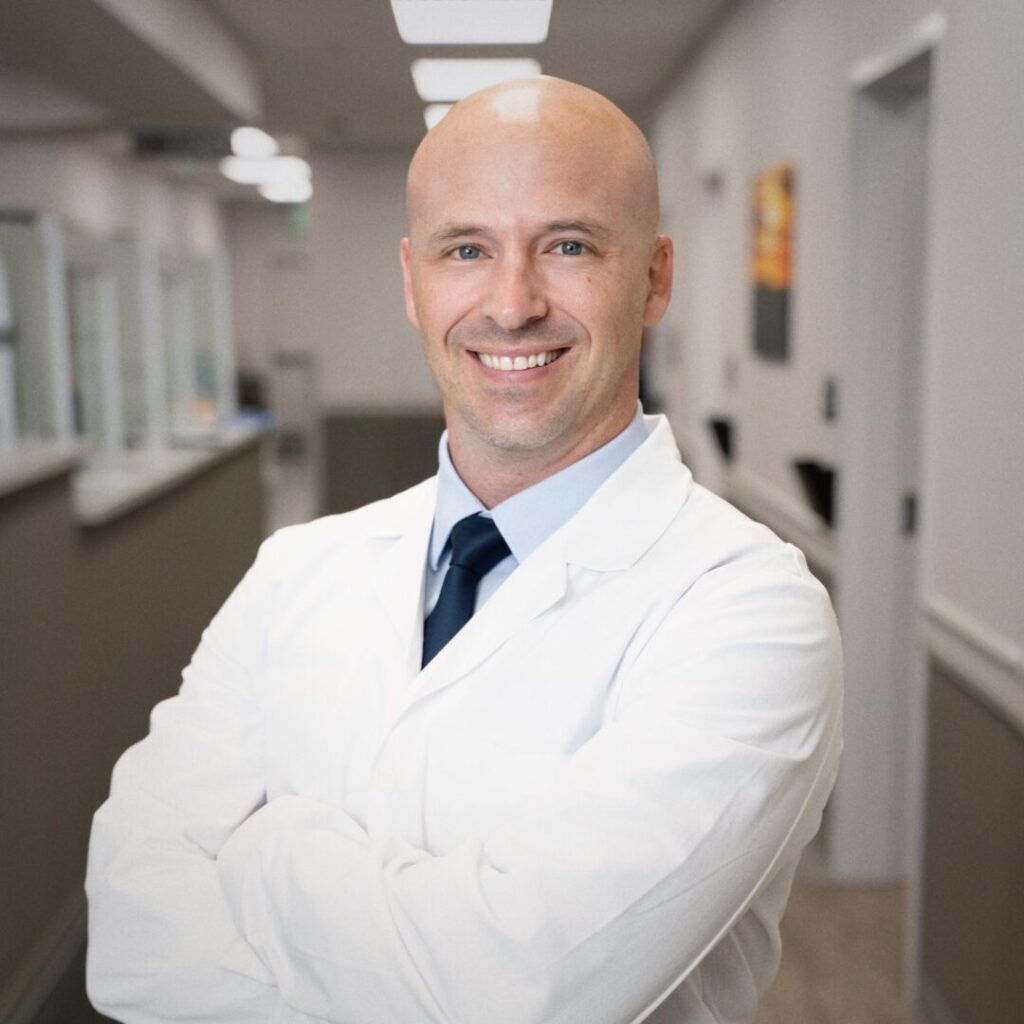According to the CDC, approximately 1 in 5 adults in the US are diagnosed with arthritis. Most people with arthritis have difficulty completing daily activities because of inflammation and pain. If your symptoms are negatively impacting your life, schedule an appointment with us for support. Our doctors will develop a thorough care plan to get you get back to a healthy lifestyle free from pain.
What is arthritis?
Arthritis is generally described as painful inflammation in the joints. It’s a catchall term for over 100 diseases, including 4 subtypes that make up the majority of cases in the US, including:
1. Osteoarthritis
Osteoarthritis is the most common form of arthritis, and typically develops as people age. Over the years, wear and tear on your joints starts to take its toll, causing inflammation and cartilage degeneration.
2. Inflammatory arthritis
The two main types of inflammatory arthritis are psoriatic arthritis and rheumatoid arthritis. With both of these conditions, your body’s immune system mistakenly attacks your joints.
3. Gout
This type of arthritis is considered metabolic because it’s caused by a buildup of uric acid in your body. This acid buildup can form needle-like crystals in your joints that cause considerable pain when you move.
4. Infectious arthritis
Infectious arthritis is caused by a bacterial, fungal, or viral infection, and is usually treated with antibiotics.
What are the symptoms of arthritis?
Arthritis symptoms can make it difficult to complete daily tasks and deplete quality of life. While there are many different types of arthritis, the symptoms are somewhat similar across the board and include:
- Pain
- Inflammation
- Stiffness
- Loss of range of motion
- Redness
How Is Arthritis Treated?
There’s often no known cause or cure for arthritis, so your doctor works toward mitigating your symptoms and slowing progression. After your first appointment, our specialists develop a plan to prevent further degeneration and inflammation. Treatment options include:
- Anti-inflammatory medications
- Physical therapy
- Corticosteroids
- Pain relievers
- Anti-rheumatic drugs
- Biologic response modifiers
While these measures may be effective in slowing down the progression of your arthritis, most damage is irreversible. In these cases, your doctor may recommend surgery to repair the joint. Our specialists use their expertise and advanced techniques to provide care that improves your quality of life. Consult with your doctor for a referral, or contact us to request an appointment!

